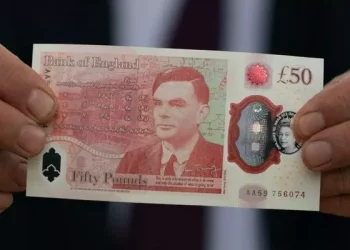The European Union (EU) has been home to a common currency, the euro, since its introduction in 1999. However, Poland, the largest member state in Central Europe, has chosen to retain its national currency, the Polish złoty. This article aims to explore the reasons behind Poland’s decision to maintain its own currency and analyze the economic, political, and historical factors that have contributed to this stance.
1. Economic Considerations
One of the primary reasons for Poland’s reluctance to adopt the euro is rooted in economic considerations. The Polish economy has consistently demonstrated resilience and steady growth, even during the global financial crisis. The flexibility provided by an independent currency allows Poland to better respond to economic shocks and maintain competitiveness. By retaining the złoty, the country has the ability to adjust its exchange rates, interest rates, and monetary policies to suit its specific economic needs.
2. Sovereignty and Political Autonomy
Another crucial factor influencing Poland’s decision is the preservation of national sovereignty and political autonomy. By retaining the złoty, Poland maintains control over its monetary policy, ensuring that decisions related to interest rates and money supply are made in accordance with its own economic priorities. This provides the country with greater independence and the ability to tailor policies to its specific circumstances, rather than being subject to the decisions made by the European Central Bank (ECB) governing the euro.
3. Eurozone Challenges and Crisis Management
Poland has observed the challenges faced by several eurozone countries, particularly during the European debt crisis. The economic difficulties experienced by Greece, Spain, Portugal, and others have highlighted the potential risks associated with a common currency. Poland’s decision to maintain the złoty serves as a precautionary measure to insulate the country from potential future economic crises within the eurozone. This approach allows Poland to employ its own tools and policies to manage any potential financial upheavals independently.
4. Integration and Convergence
To adopt the euro, a country must meet specific convergence criteria outlined in the Treaty of Maastricht, including stable inflation rates, government deficits, and debt levels within certain thresholds. While Poland has made significant progress in achieving these criteria, it has not yet fulfilled all the necessary requirements. Maintaining the złoty allows Poland to continue working towards meeting the convergence criteria at its own pace while ensuring a stable and sustainable integration with the eurozone in the future.
5. Public Opinion and Euroskepticism
Public sentiment and skepticism towards the euro also play a role in Poland’s decision. The Polish population, while generally supportive of EU membership, has expressed concerns over the potential loss of economic and political control associated with adopting the euro. Public opinion surveys consistently show that a majority of Poles are hesitant about relinquishing the złoty in favor of the euro. The government’s decision to respect public sentiment and prioritize national preferences reflects a commitment to democratic principles.
Conclusion
Poland’s decision to retain the złoty rather than adopt the euro is driven by a combination of economic, political, historical, and public opinion factors. The country’s robust economic performance, desire to maintain sovereignty, concerns over eurozone challenges, ongoing convergence efforts, and public skepticism have all contributed to this stance. By maintaining an independent currency, Poland can exercise greater flexibility in managing its economy and maintaining stability. Nevertheless, Poland’s approach does not exclude the possibility of future euro adoption if and when the country deems it economically and politically advantageous.
Related Topics:



























